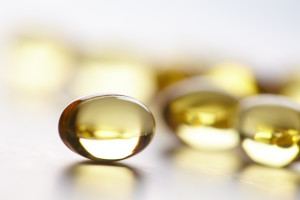Vaginal Dryness after Menopause
One of the most often talked about symptoms of menopause is vaginal dryness. It would be ideal if it only showed up when menopause started, but unfortunately it can start happening even a few years before menopause. Just as a bonus, women can also experience vaginal dryness after childbirth, while breast feeding, or even if they are taking certain allergy medicine or certain antidepressants.
years before menopause. Just as a bonus, women can also experience vaginal dryness after childbirth, while breast feeding, or even if they are taking certain allergy medicine or certain antidepressants.
Back to the hormonal factors, however, vaginal dryness begin hand in hand with vaginal atrophy. A truly scary word, though it simply means your body is not producing as much estrogen as before. Estrogen is responsible for the natural lubrication, elasticity, and thickness of the cervix: once estrogen production goes down, the natural lubrication of the vagina is no longer happening, and the vaginal walls can experience thinning, drying, and possible inflammations.
Lubrication
Basically, it all comes back to lubrication: since your body’s natural lubrication system retires at the age of menopause, you need to supplement vaginal lubrication via external (internal) means. Most often, especially because vaginal dryness can lead to pain during intercourse, women will turn towards vaginal lubricants. Though a great solution, it is but temporary. For something more long lasting, you may want to look into vaginal moisturizers. You can apply them every few days to moisturize and keep vaginal tissue healthy.
There is also the option to reinvigorate vaginal tissues. Science really does wonders… this can be
a low dose vaginal estrogen cream, tablet, or ring. Note that this can be prescribed in additional
to other hormonal supplements you may be taking. It is meant to specifically tackle vaginal
dryness, especially if it persists while you are on hormonal treatment post-menopause. You will
need to discuss this option with your doctors and take into consideration any other health issues
you may have faced, particularly breast cancer.
There is also the option of an oral medication, Ospemifene or Osphena, which is more geared
towards addressing vaginal pain during intercourse. It is a selective estrogen receptor modulator,
SERM, medication but women who have a high risk of breast cancer, or have faced breast
cancer, best not consider it as an option. For more details on what this medication can do for you,
consult with your doctor or medical professional.
Another technique to help you ease painful intercourse if you are post-menopausal is a nightly
vaginal suppository containing dehydroepiandrosterone (DHEA).
It’s also important to note that vaginal stimulation or even regular sexual activity, solo or with a
partner, can absolutely help post-menopausal women keep their vaginal tissues healthy. Above
all, remember this is a very natural response of your body to hormonal changes, there is nothing
to be ashamed about, and it is well within your rights to seek healthy treatments that work for
you and your body. You owe it to yourself, and though we can’t turn back the clock, we can
make sure we are living pain-free and comfortable lives within the new parameters our bodies
present to us.

 A Vitamin E 400 mg capsule applied into the vagina daily. If you make a small prick in the capsule, it will absorb faster.
A Vitamin E 400 mg capsule applied into the vagina daily. If you make a small prick in the capsule, it will absorb faster.